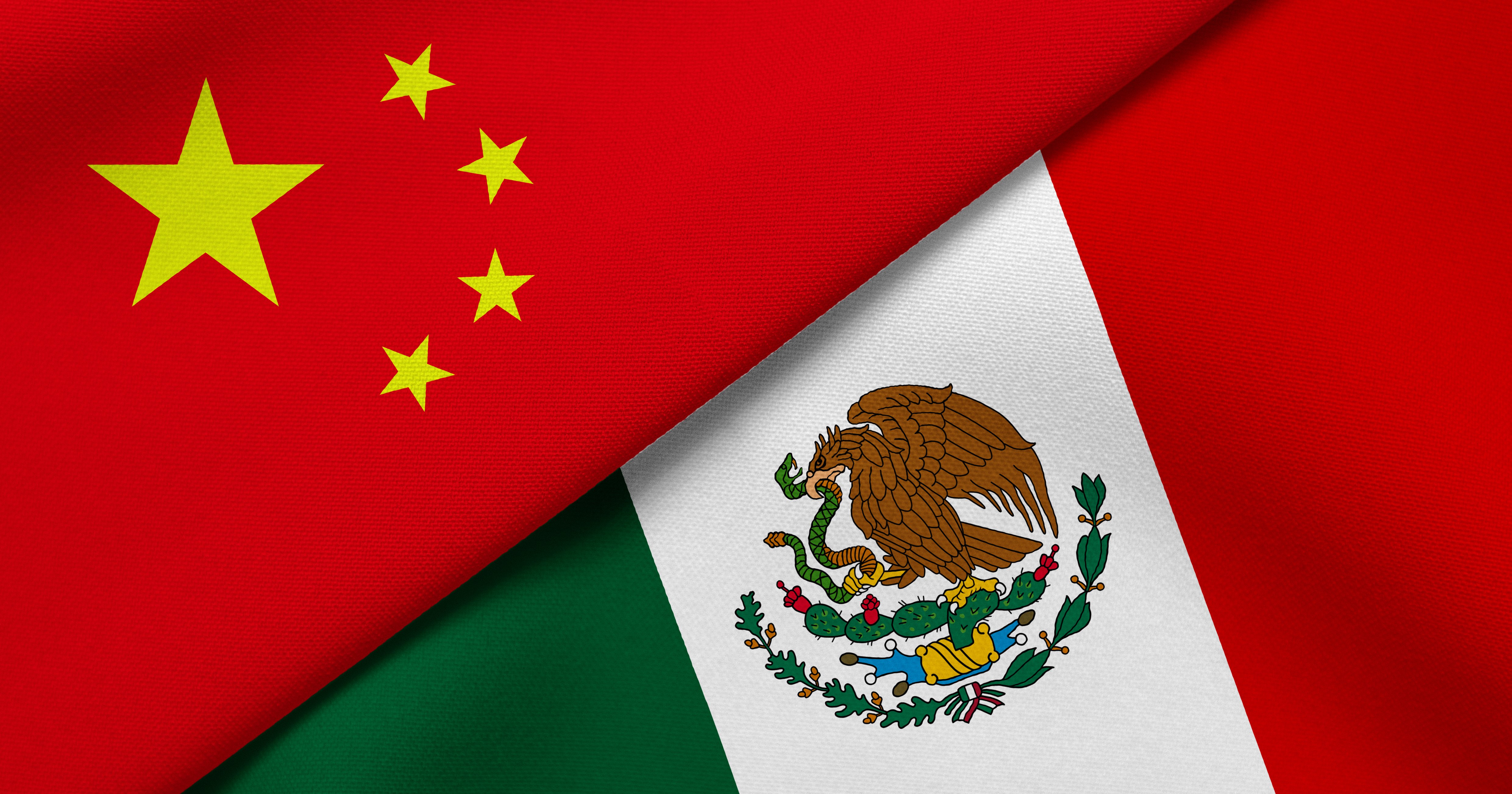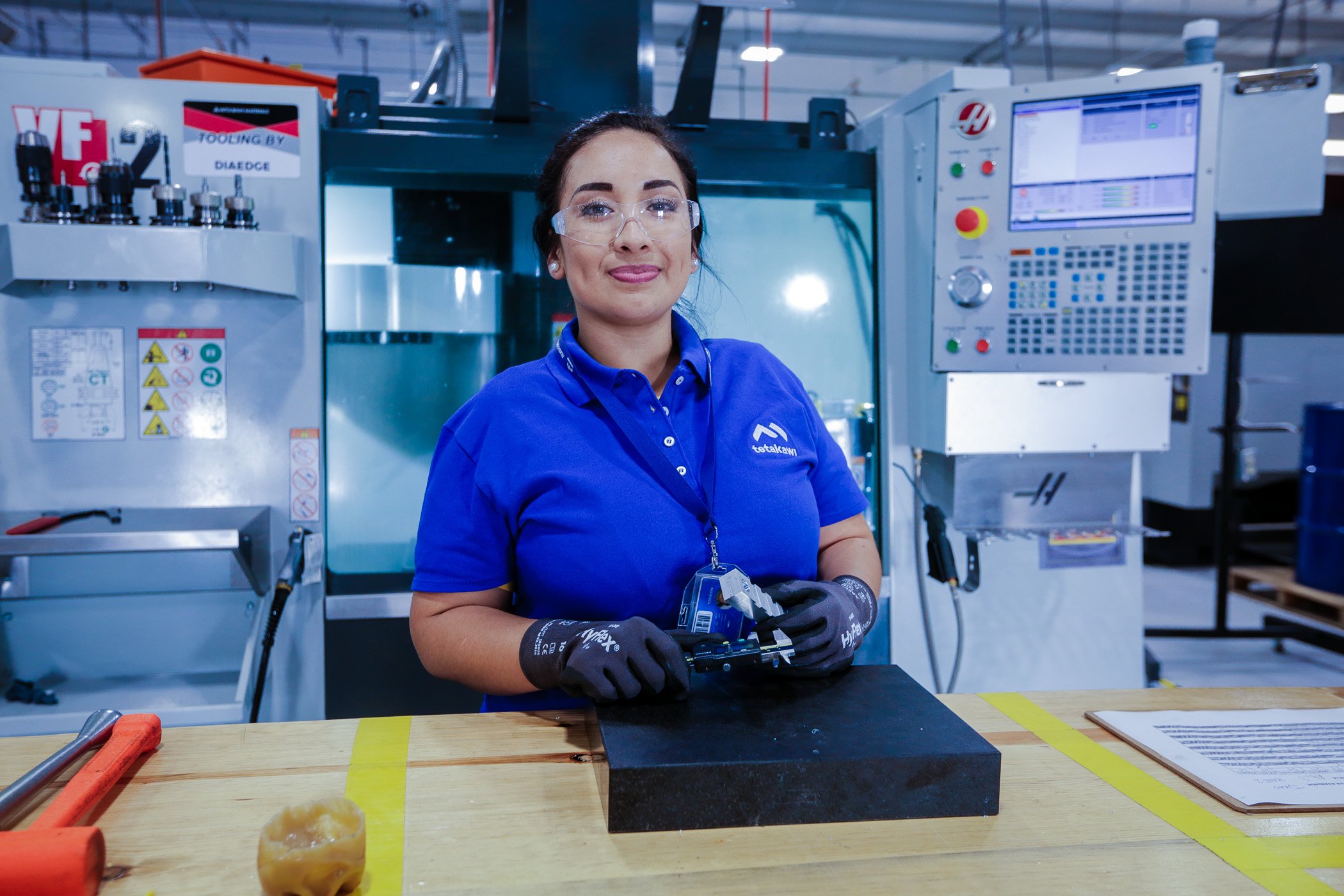Seven Reasons Why It Pays to Move International Manufacturing From China to Mexico
China has begun to concede its spot as the premier low-cost manufacturing capital of the world decades after earning this reputation title. Now, more companies are looking to diversify their global footprint, and consequently leaving China for sites in Mexico. As of 2019, Mexico had surpassed China as the United States' largest trading partner for the value of goods, a spot China had held since 2015.
In recent years, nearshoring to Mexico has emerged as a strategic solution for companies seeking to optimize their manufacturing operations. With its advantageous proximity to the United States, nearshoring offers numerous benefits, including reduced shipping times, lower transportation costs, and enhanced supply chain resilience. By relocating manufacturing facilities to Mexico, companies can capitalize on the efficiency gains derived from shorter lead times and improved logistical agility.
Moreover, nearshoring fosters closer collaboration between international partners, facilitating seamless communication and fostering stronger relationships within the supply chain. As companies increasingly prioritize flexibility and responsiveness in their operations, nearshoring to Mexico represents a compelling strategy to achieve these objectives while maintaining competitive advantage in the global marketplace.
There are a number of reasons why manufacturing in Mexico is leading to better cash flow for international firms who choose to do business outside of China's borders. Below, we highlight seven critical differentiators in Mexico vs. China manufacturing.
1. Wage Stability in Mexico vs. China
China first attracted attention as a desirable manufacturing location due to the low cost of labor. Today, however, Mexico has a competitive advantage over China when it comes to wages. Data from the China National Bureau of Statistics and Mexico’s Institute of Statistics and Geography (INEGI) indicates that, for 2021, China’s manufacturing workers earned an average of US $840 each month compared to US $480 in Mexico. This is the continuation of an ongoing trend that indicates that China’s wages will continue to rise while Mexico’s hourly manufacturing wages are expected to remain stable for the foreseeable future.
2. Demographic Stability in Mexico vs. China
Manufacturing labor shortages are increasingly factoring into companies’ decisions to move manufacturing overseas. As a result, more manufacturers are evaluating long-term demographic stability as part of their site selection process.
This is another area where Mexico offers an advantage. Government data reveals that not only has China’s manufacturing workforce been on the decline since its peak in 2011, but its population has begun to shrink. Mexico, on the other hand, has the tenth largest population worldwide, and its numbers continue to increase at a rate of 0.8% annually. Experts project that the region will have enough incoming workers to sufficiently offset those retiring well into the latter half of the century.
3. Shipping Costs and Options in Mexico vs. China
While China’s low wages once more than offset the cost of shipping goods to the Americas, that’s no longer the case. It’s now impossible to ignore that it’s much more cost-effective to transport goods to the U.S. and Canada from Mexico than China. On average, shipments from China to the U.S. take approximately 36 days to arrive and cost $2.63 USD per cubic foot. The same shipment from Mexico would more typically arrive within two days and cost $1.26 USD per cubic foot to ship.
Moreover, manufacturers have become much more attuned to the fact that a single shipping delay can create a chain reaction with the potential to wreak havoc on their downstream partners’ operations. Mexico offers manufacturers redundancy in how they get their goods to customers in the U.S. and Canada. Options include trucks, trains, planes, or ships.
4. Tax Advantages and Incentives in Mexico vs. China
The taxes that countries levy on manufacturers can add significantly to their operational costs. In some cases, these added costs can be altogether prohibitive. For example, U.S. tariffs first placed on Chinese imports in 2018 have added to some companies’ cost of exporting essential manufacturing components from China.
In fact, many companies have shifted China manufacturing to Mexico specifically to benefit from the tax advantages that come from operating in North America under conditions set by the USMCA free trade agreement. The USMCA agreement lays out a number of advantages to producing goods entirely in North America. This most notably includes the rules of origin clause that provides significant tax advantages for automotive companies manufacturing in North America.
Free trade agreements aren’t the only advantage that Mexico offers – although, with agreements extending to cover more than 50 countries, it is a notable advantage. Mexico's trade compliance regulations also include provisions for companies to operate under special duty-free status. Through Mexico’s IMMEX maquiladora program, manufacturing companies can carry out “temporary” importations of production parts, materials, and assets without having to pay the otherwise-assessed 16% value-added tax.
In addition, Mexico's shelter manufacturing program allows foreign companies to operate under the legal umbrella of a domestic Mexico shelter services company. Foreign companies do not have to establish a legal entity in Mexico, as the shelter company fills that role risk. This presents an excellent alternative to contract manufacturing services, as it provides a low-risk mode of entry into Mexico without requiring foreign companies to give up control of manufacturing processes.
What’s more, companies can immediately start shipping goods while awaiting their certification request by using Tetakawi’s Start-Up Services. Companies looking to move or establish manufacturing facilities in Mexico are encouraged to utilize this offering.
5. Economic Status and Competitiveness in Mexico vs. China
A country’s competitiveness gives companies insight into what an organization can expect in terms of the institutions, policies, and other factors in place to support business investments. More competitive countries are positioned to attract investments that can create jobs and wealth for their people.
Mexico has worked hard to compete in the global market through its numerous free trade agreements and tax incentives. Many local Mexican governments have had extra incentives in place for years to attract manufacturing around certain key industries, including aerospace, automotive, and electronics manufacturing. Mexico also competes through investments in educational institutions and training programs that have created a workforce with in-demand manufacturing skills.
While China’s massive economy does give it an edge in competitiveness, the fact remains that Mexico has proven to be far more competitive when it comes to exports to the U.S., with $324 billion in U.S. exports in 2022 compared to China’s $150 billion.
6. Intellectual Property Protection in Mexico vs. China
Intellectual property theft and infringement have been a longstanding concern for manufacturers operating in China. In fact, the U.S. Patent and Trade Office offers a China IPR Toolkit meant to help U.S. companies protect their IP when operating in China.
A country's legal framework surrounding intellectual property is crucial to manufacturing success. This is one reason that the USMCA agreement lays out a framework for ensuring IP protection for all parties. Independent of this agreement, Mexico has a much more robust system for enforcing IP regulations when compared to China’s manufacturing sector.
7. Operational Simplicity in Mexico vs. China
There is no denying Mexico's proximity to the U.S. is an asset for manufacturers. In addition to reducing shipping times, this nearness makes it easy for executives to travel between the two countries at a lower cost. This affords companies the ability to easily and cost-effectively conduct routine training, oversee logistical issues, and perform quality control checks.
Simple factors like sharing time zones also make it easy for executives in the U.S. to communicate with their Mexico-based partners, boosting manufacturing efficiency rapidly. Moreover, cultural similarities, including language, make management and communication relatively straightforward and open between the U.S. and Mexico.
The right site in Mexico can give you a competitive advantage
Manufacturing in Mexico is a strategic move that benefits businesses by saving them money and operational frustration. It’s why even manufacturers who have had a strong presence in China are making the move to Mexico.
When determining the advantages of various locations, we hope you will consider these critical differentiators as part of the decision-making process. Remember, too, that various sites within a country will offer their own unique advantages. Tetakawi can help you find the right site in Mexico to give you a competitive edge. Contact Tetakawi to learn more.
Subscribe
Sign up and stay informed with tips, updates, and best practices for manufacturing in Mexico.
Manufacturing in Mexico vs. China: 7 Key Advantages Mexico Offers:
- Wage Stability in Mexico vs. China
- Demographic Stability in Mexico vs. China
- Shipping Costs and Options in Mexico vs. China
- Tax Advantages and Incentives in Mexico vs. China
- Economic Status and Competitiveness in Mexico vs. China
- Intellectual Property Protection in Mexico vs. China
- Operational Simplicity in Mexico vs. China





